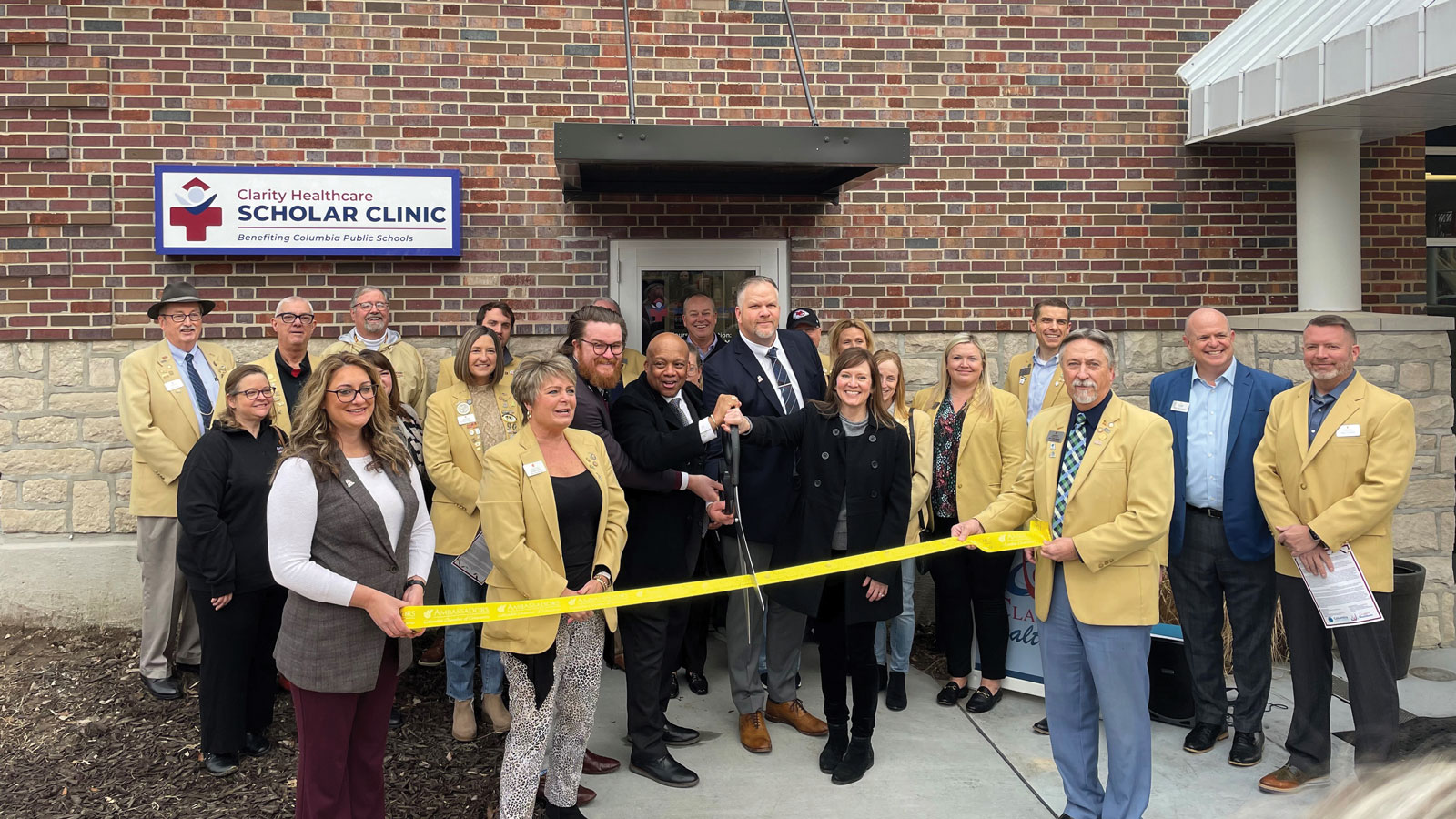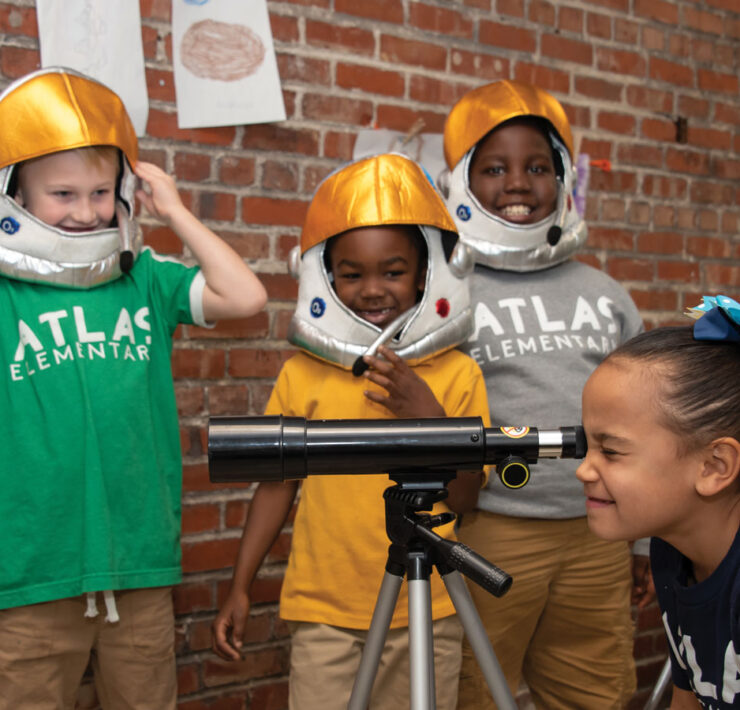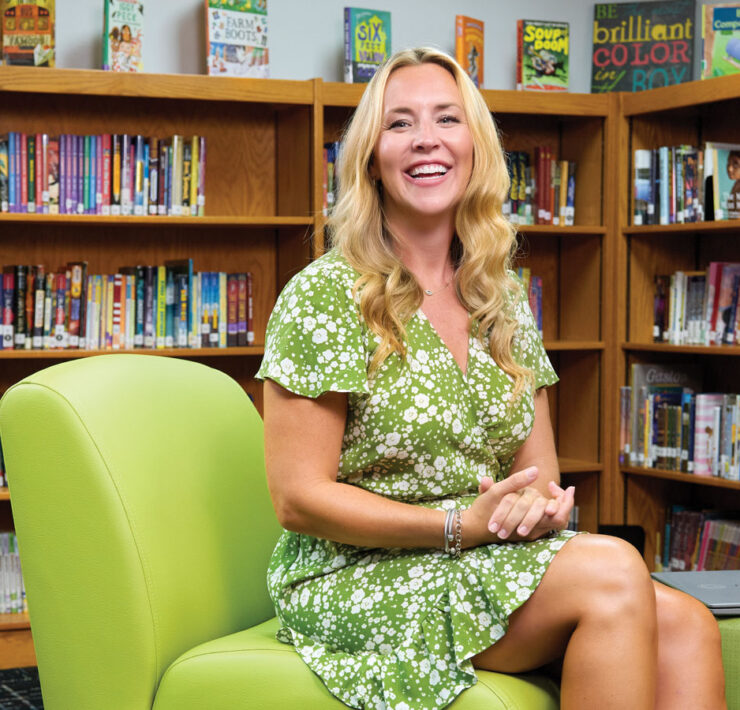Scholar Clinic Serves CPS Students
- This article originally appeared as "Clinic Serves CPS Scholars" in the September 2024 "Education" issue of COMO Magazine.

New health focus targets obstacles that students encounter.
Clarity Healthcare’s school-based clinics help provide wider access to health care, and that’s one of the goals of the Scholar Clinic for Columbia Public School students. The clinic, housed at the CPS Gifted Center, certainly lacks the aura of a classroom. The examination rooms are decorated with bright, colorful artwork embellished with paper garlands.
“We can do everything that a primary care office does,” says Megan Kruse, a Certified Pediatric Nurse Practitioner (CPNP) at the clinic. “We can do primary care, sick visits, hearing and vision screens, vaccines, and labs … Anything they can get done at a primary care office, we can do here.”
The Scholar Clinic is a Federally Qualified Healthcare Center (FQHC), focused on serving parts of the community that have difficulty accessing healthcare. Services are provided at no out-of-pocket costs to students who receive free or reduced lunch.
Jake Rettke, program director, explained how the process works.
“We’ll work with families to make sure that if they’re eligible, we can get an application in for Medicaid,” he said. The Scholar Clinic offers a sliding fee scale to make sure cost is not a barrier. The clinic also offers sports physicals at no cost to any CPS student.
The Scholar Clinic had its genesis at a Columbia Chamber of Commerce event when Matt Gas, president of the Central Region of Brightli — part of the Clarity system — had a conversation with CPS Superintendent Dr. Brian Yearwood about obstacles students sometimes encounter when they try to get health care. Students new to the country are most likely to face those challenges, and since the school setting is also among the first social interactions for those students, it made sense to deliver health care in that setting.
“Another big component here is our translation services,” Rettke said. “We serve a huge community of individuals in which their first language isn’t English. Having access to that resource on hand makes it a lot easier, especially when we start to break down the next steps in the treatment. We have those translation services to walk the families through what that looks like, as opposed to being dumped into a big, confusing system and having to figure that out on their own.”
Any student enrolled in the public school system can call the clinic to schedule an appointment and they will be informed of whether the clinic has same-day availability or not. However, most of the time the schedule is open for same-day appointments. Most of the appointments are referrals by school nurses who call to set up an appointment for a sick child. For students who already have a primary care provider, it becomes a collaborative effort between the primary care doctor, the parents, and the clinic, keeping an open line of communication among the three.
“A lot of our referrals come from school nurses,” Kruse said. “The school nurses are there on a day-to-day basis and get to know the students, their families, and their resources for health care. Oftentimes they suggest for students to come to the scholar clinic if they’re having trouble being seen by their primary care doctor or don’t have one.”
Rettke stressed that parents are kept in the know.
“We’re not going to start seeing the kid until we have consent from the parents,” he added. “We want to, whenever possible, have the parents be a part of that appointment however they can. If it’s attending the appointment, be brought in on a Zoom or phone call, or fill them in after the appointment if they’re too busy.”
The clinic expects to see even more students now that vision services are offered. This summer was the clinic’s first project in optometry.
“The achievement that I think the district takes a lot of pride in — I know I do — is that since opening, no more than 10 percent of the students seen by our health care providers are sent home,” Rettke said. “Even with the ones that do go home, it’s nice to know they have what they need to feel better and get back to school the next day.”








